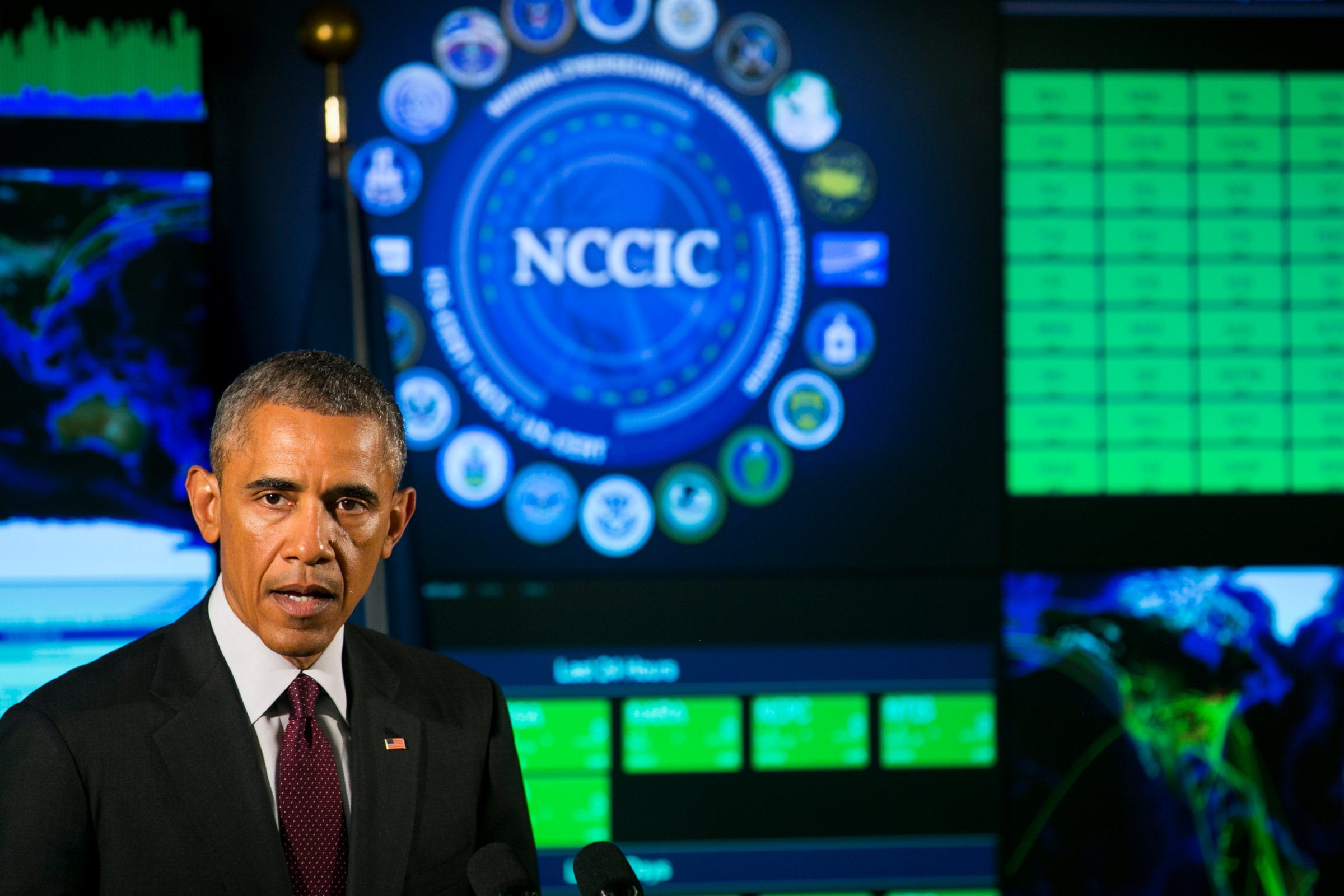
President Obama unveiled a new proposal Tuesday aimed at protecting businesses and the government from hackers. The President’s plan would encourage public and private sector information sharing as well as expand law enforcement’s authority to prosecute digital criminals.
The proposal, announced at the National Cybersecurity and Communications Integration Center in Arlington, Virginia, comes in the wake of high-profile hacks against Sony, Home Depot, J.P. Morgan and other companies over the past year. A wide array of businesses and police groups have been calling on Congress to pass new cybersecurity legislation as a response to those incidents.
On the corporate side, Obama’s plan would require businesses to notify consumers if their personal information has been exposed to hackers, as in the case of the Target and J.P. Morgan hacks, for instance. Additionally, companies would be protected from liability for sharing digital threats with the Department of Homeland Security, which would then share those threats in databases accessed by the private sector.
For prosecutors, the White House’s package would let them better target the sale of identity theft software and computer networks used by hackers. It would also criminalize the overseas sale of U.S. financial information.
Both government representatives and private companies have long demanded many of the steps highlighted in Obama’s proposal. Just last week, Admiral Michael S. Rogers, director of the NSA and commander of U.S. Cyber Command, said Congress should pass legislation that improves coordination between U.S. intelligence and the private sector.
“We have got to create partnerships that bridge the divide between the private sector and the government,” Rogers said at a conference in New York City. “I don’t think it’s realistic for the private sector to deal with [cyber threats] all by themselves.”
A coalition of businesses, meanwhile, has already voiced support for the new plan.
“Collaboration between industry and government to share threat information is crucial in the fight against sophisticated and persistent cyber criminals,” said Nicholas Ahrens, vice president for cybersecurity and data privacy at the Retail Industry Leaders Association. A number of RILA members, including Walgreen, Target, Nike and JCPenney, began sharing data on cyber threats last May.
It’s unclear, however, if an Obama-backed cybersecurity bill will make it through the Republican-controlled Congress, which has in recent years failed to pass similar measures.
More Must-Reads from TIME
- Biden Drops Out of Presidential Race , Endorses Harris to Replace Him
- The Chaos and Commotion of the RNC in Photos
- ‘We’re Living in a Nightmare:’ Inside the Health Crisis of a Texas Bitcoin Town
- Why We All Have a Stake in Twisters’ Success
- 8 Eating Habits That Actually Improve Your Sleep
- Stop Feeling Bad About Sweating
- Welcome to the Noah Lyles Olympics
- Get Our Paris Olympics Newsletter in Your Inbox
Contact us at letters@time.com